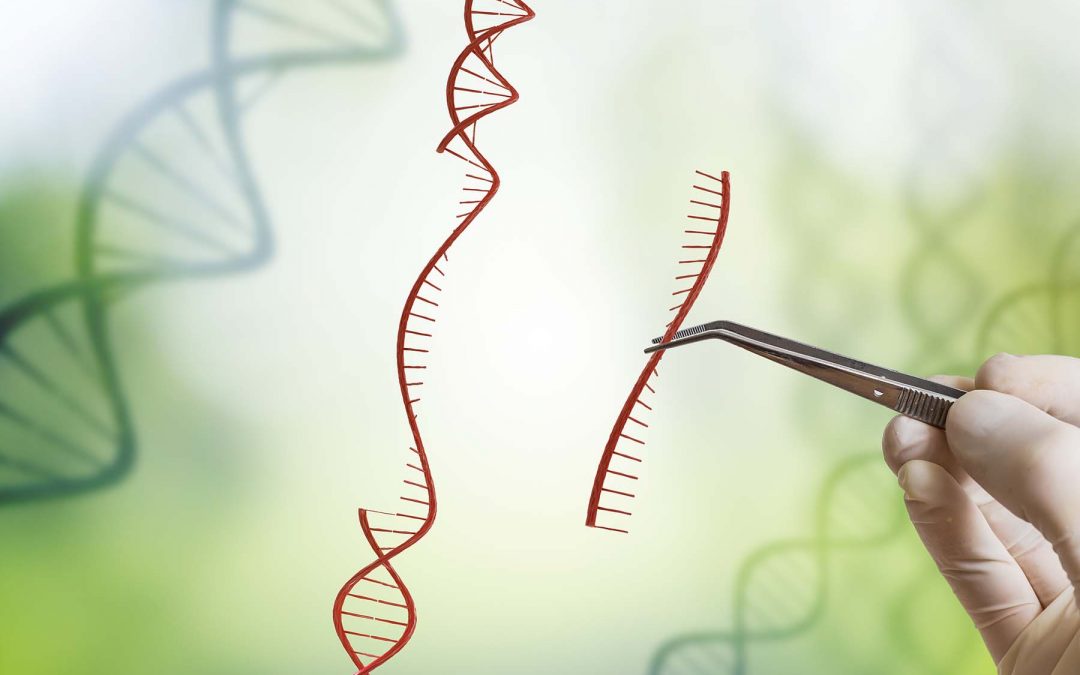Health of Mother Earth Foundation (HOMEF), the GMO-Free Nigeria Alliance and over 40 Non-Governmental Organizations representing millions of Nigerians have called on President Muhammadu Buhari to not sign into law, the recently passed Bill for an Act to amend the National Biosafety Management Agency Act, 2015 to enlarge the scope of the application and include definitions of other evolving aspects of modern biotechnology in Nigeria.
According to the groups, including these evolving aspects of biotechnology in the NBMA Act will open up the country to more dangerous experimentations on aspects of the highly controversial technology while we still struggle with regulating the basic aspects of it.
In a statement made available to the media on 27 May 2019, the groups stated that the evolving aspects of modern biotechnology referred to include gene drives/gene editing and synthetic biology which are known to pose serious risks to global biodiversity and will harm our economy, our health, our food and ecosystems.
The Director of HOMEF, Nnimmo Bassey, explained that gene drive is a genetic engineering tool which is used to force artificial genetic changes through entire populations of animals, insects and plants. He warned that this technology has the potential of wiping off whole populations of organisms within a short time and can be harnessed as a biological weapon, thereby constituting a threat to national, regional and global security.
Bassey further explained that currently, at global level, there is no agreement on how to carry out risk assessments or establish risk management measures for gene drive organisms nor clear guidelines on how to establish that appropriate, free, prior and informed consent of local communities which will be affected. “Until a global agreement is reached on these, it is our concern that any new framework enabling new gene-edited changes will also have the effect of creating loopholes allowing for the release gene drive organisms in Nigeria to disastrous results,” he added.
The Coordinator of the GMO-Free Nigeria Alliance, Gbadebo Rhode-Vivour pointed out that synthetic biology, another aspect of modern biotechnology that the bill seeks to include, means the generation of new organisms with traits which do not exist in nature through the use of re-designed principles of engineering molecular biology. This, he said, has great implications for local economies and biodiversity, as natural/locally made products will be replaced with synthetic ones and markets will be concentrated in the hands of corporations thus increasing corporate control over product processes and destroying local livelihoods. He added that synthetic biology may result to unexpected contaminants, toxins or allergens that will be hard to control.
The groups reiterated that Nigeria does not need agricultural biotechnology or the extreme applications of genetic engineering to solve food and agricultural problems. “What is needed is the protection of our biodiversity as a robust base for supporting our local economy, indigenous farming systems and promotion of people-centred solutions and not profit driven approaches”.
They stressed that Nigeria should first strengthen regulation of the first generation genetically modified organisms (GMOs) and invest in independent research on the technology, adding that it is essential for Nigeria to support and listen to researchers that are not conflicted with vested interests. The coalition called on President Buhari to instead of assenting to the Bill, put an outright ban on gene drives, on synthetic Biology and on the first generation GMOs.
Signed
- GMO-Free Nigeria Alliance
- Health of Mother Earth Foundation (HOMEF)
- Alliance for Food Sovereignty in Africa (AFSA)
- Nigerians Against GMOs
- Friends of the Earth Africa (FoEA)
- Smallholder Women Farmers Organization of Nigeria (SWOFON)
- Nigeria Women Farmers Association (NIWAAFA)
- Women in Agriculture
- Association of Small Scale Agro Producers In Nigeria (ASSAPIN)
- Cassava Growers Association
- Civil Society Coalition for Poverty Eradication (CISCOPE)
- Bio Integrity and Natural Foods Awareness
- Health Promotion Education and Community Development Initiative (HPECDI)
- Idama Coorperative Farm
- Green Alliance of Nigeria
- International Climate Change Development Initiative (ICCDI)
- Community Development Advocacy Foundation (CODAF)
- Women& Children Life Advancement initiative
- Women Initiative on Climate Change
- Rural Alliance for Green Environment (RAGE)
- Community Forest Watch Nigeria
- Kebetkache Women Development and Resource Centre
- Initiative for Peace, Empowerment and Tolerance
- The Young Environmentalist Network (TYEN)
- Peace Point Action
- Policy Alert
- Centre for Research in Environmental Resource Management (CREMA)
- Committee on Vital Environmental Resources (COVER)
- Climate Change and Amelioration Initiative (ECCAI)
- Gender and Environmental Risk Reduction Initiative (GERI)
- Pearls Care Initiative (PCI)
- Gender and Community Empowerment Initiative (GECOME)
- Good Health Living and Environmental Foundation
- Initiative for Peace, Environment and Tolerance
- Eco Defenders Network
- Urban-Rural Environmental Defenders (U-RED)
- Climate Transformation and Energy Remediation Society ( CLIMATERS)
- Civil Society Legislative Advocacy Centre (CISLAC)
- Integrity Conscience Initiative (ICI)
- SPEAK Nigeria
- Community Environmental-Watch Committee
- Youths and Small Holder Farmers (YOSHOFA)
- Population and Environmental monitoring International
- EcoActors
- Eco Assurance and Rural Transformation Center
Notes
How Gene Drive Organisms Could Entrench Industrial Agriculture and Threaten Food Sovereignty www.etcgroup.org/sites/www.etcgroup.org/files/files/etc_hbf_forcing_the_farm_web.pdf
A Call to Protect Food Systems from Genetic Extinction Technology www.etcgroup.org/sites/www.etcgroup.org/files/files/call_to_protect_food_systems_oct_17th.pdf
Reckless Driving: Gene drives and the end of nature www.synbiowatch.org/2016/08/reckless-driving/
COP decision XIII/17 https://www.cbd.int/decisions/cop/?m=cop-13
COP Decision XIII/18 https://www.cbd.int/decisions/cop/?m=cop-13
COP Decision 14/19 https://www.cbd.int/decisions/cop/?m=cop-14
Synthetic Biology, Biodiversity & Farmer. www.etcgroup.org/content/synthetic-biology-biodiversity-farmers
Synthetic Biology, Biodiversity & Farmers www.etcgroup.org/sites/www.etcgroup.org/files/files/etc_synbiocasestudies_2016.pdf
What’s on Our Plates – A Report on Market Shelf Survey for Products of Genetically Modified Organisms in Nigeria https://homef.org/wp-content/uploads/2019/01/Report-on-Market-Shelves-Survey-for-GM-Food-Products-2018-web.pdf
For more information, please contact:
Joyce Ebebeinwe, HOMEF’s Project Officer on Biosafety
[email protected]; 09069756927





